You Thought Taycan Turbo Was Bad? Smartphone Maker Xiaomi's First Car Has Electric Motors Named V6 And V8

When the Porsche Taycan debuted in 2019, purists were infuriated by Porsche’s decision to name the top trim level “Turbo” despite the car being fully electric and not actually having a turbocharger. For the most part people have gotten over it — or at least, they should have by now — but there’s a new contender for their ire. Chinese company Xiaomi, the second-largest smartphone maker in the world, just unveiled its first car, and it has electric motors named V6 and V8.
2024 BMW 530i xDrive | First Drive
No, seriously. The new Xiaomi SU7’s electric motors have been dubbed “HyperEngines” by the brand, and they come in three different varieties. The V6 and V6s versions will be available at launch for the SU7, while the more powerful and faster-revving V8s motor will be offered starting in 2025. The company is also working on an even wilder carbon-sleeved electric motor that’s currently in the prototype phase. Xiaomi purposefully named the electric motors after internal combustion engines, too.
Image: Xiaomi
The SU7 is a four-door sedan about the size of a Taycan, and it has a drag coefficient of just 0.195, making it even more slippery than the Lucid Air. It was designed under the direction of Tianyuan Li, who had been the lead designer for the BMW iX. The SU7 is an attractive car, with sculpted haunches, a smoothly sloping roofline and headlights inspired by grains of rice. Active aerodynamics include a rear spoiler and grille shutters.
Underpinning the SU7 is a platform developed by Xiaomi that the company has dubbed “Modena,” a nod to the Italian town that spawned Ferrari. The base rear-wheel-drive SU7 uses a single 295-horsepower “V6″ motor and a 400-volt architecture; Xiaomi says it will do 0-to-62 mph in 5.3 seconds and have a range of 415 miles on the Chinese CLTC cycle. The all-wheel-drive SU7 Max uses an 800-volt architecture and two motors, a “V6″ and a “V6s,” for a total of 664 hp, a 2.8-second 0-to-62-mph time and a 497-mile range.
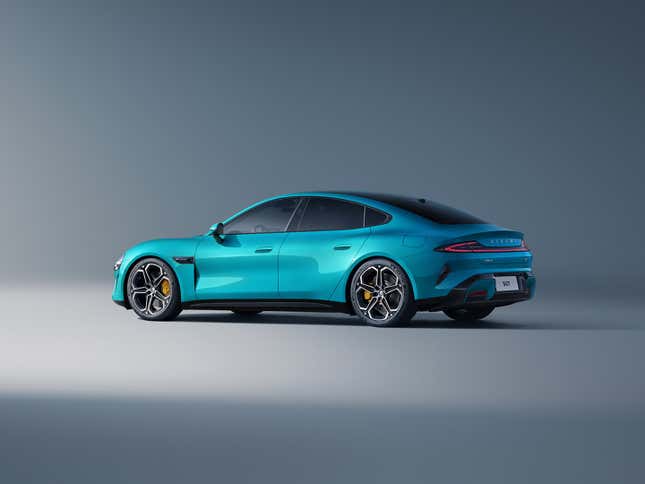
Image: Xiaomi
SU7s with the 800-volt capability can gain 137 miles of range in 5 minutes of charging, or 242 miles in 10 minutes. Other performance features include 4-piston Brembo brakes, a boost mode, adaptive air suspension, active anti-roll tech and launch control. Xiaomi used integrated “Hypercasting” for the rear floor, which reduced the number of welding joints by 840, also making the car’s structure stiffer, lighter and quieter.
As you might expect from a smartphone company, the SU7 has a lot of tech. The interior has a 16.1-inch central touchscreen that runs Xiaomi’s own HyperOS operating system, which will also be adopted by all of Xiaomi’s phones and other devices, replacing the Android-based OS it currently uses. Thanks to a Qualcomm Snapdragon processor, the system is said to take less than two seconds to boot up, and it can do split-screen multitasking or cast from your phone. Rear-seat passengers can magnetically attach Xiaomi tablets to the front seatbacks, and the in-car tech can be used to control home appliances. A bit surprisingly, there are actually a row of physical buttons below the touchscreen, plus traditional steering wheel controls and stalks.
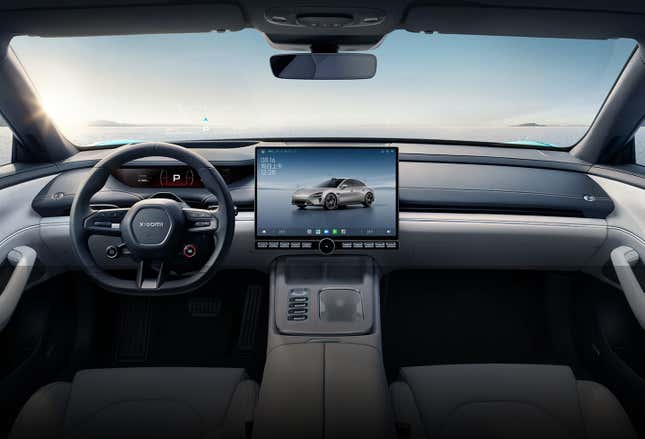
Image: Xiaomi
The SU7’s driver-assist suite includes a lidar sensor on the roof, three millimeter wave radar sensors, 12 ultrasonic radars and 11 cameras. Initially this will be used for hands-free highway driving and automated parking and summoning, but by the end of 2024 Xiaomi says it will offer some sort of autonomous city driving in more than 100 cities.
Xiaomi first announced plans to build a production car in 2021, and the company CEO Lei Jun says it spent $1.4 billion on development of the SU7 and aims to put another $10 billion into becoming one of the top five automakers in the world in the next 15 to 20 years. Pricing has yet to be announced, but the SU7 will likely be aligned with the Taycan. In a tweet, Lei Jun said the SU7 is for “people who are into cutting-edge technology, have a passion for life, and have high expectations for good design and experience.”
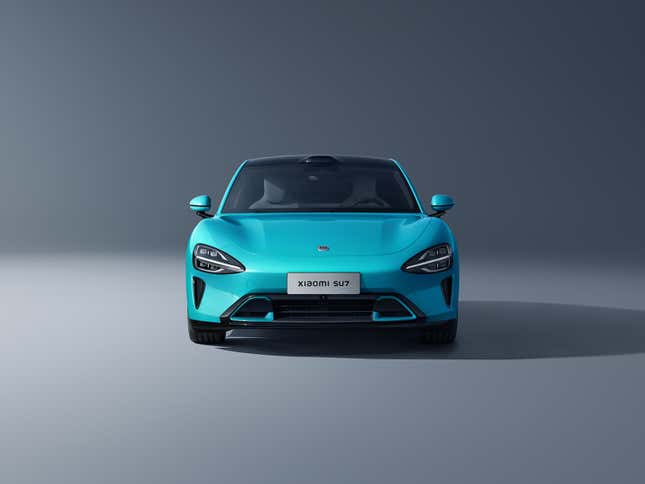
Image: Xiaomi
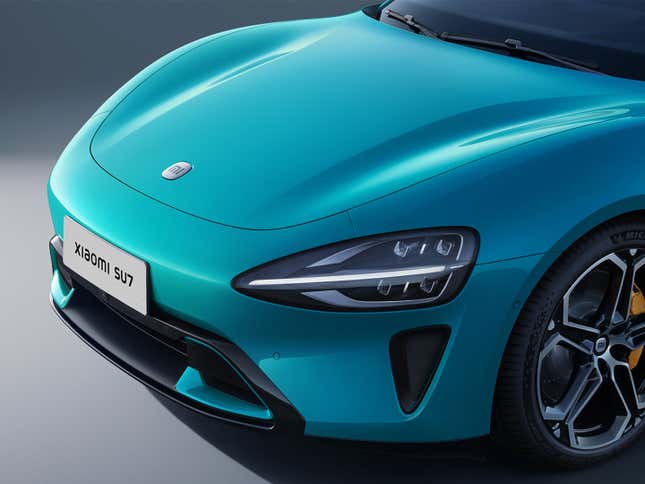
Image: Xiaomi
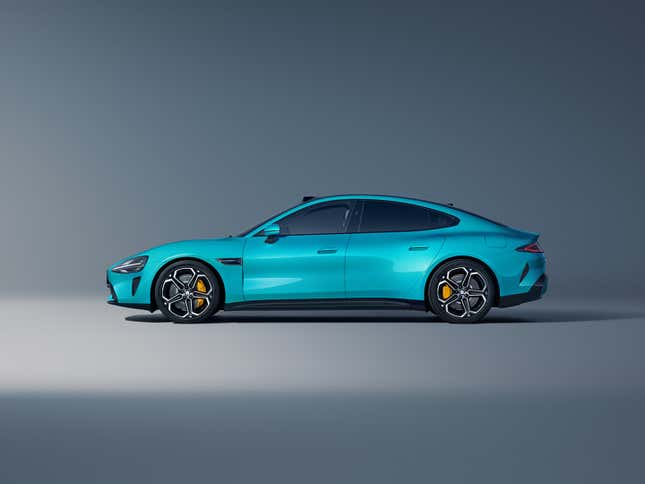
Image: Xiaomi
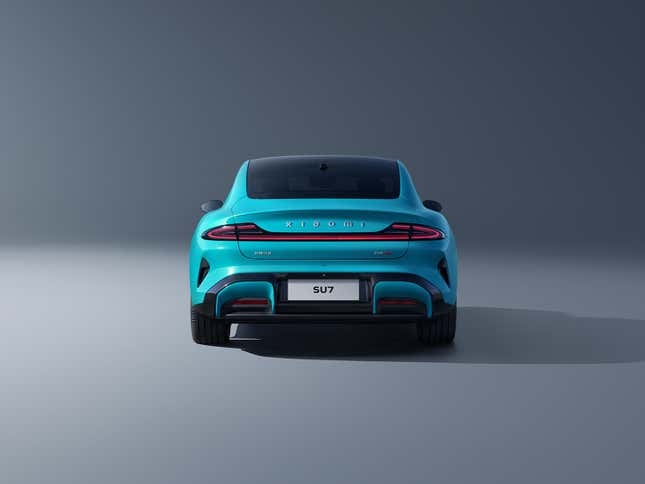
Image: Xiaomi
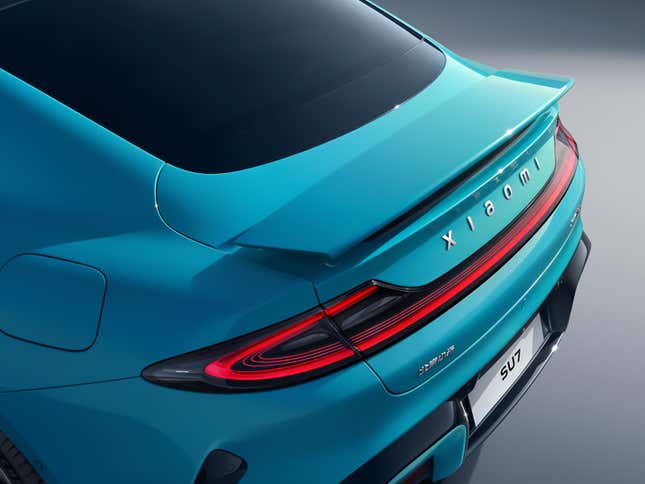
Image: Xiaomi
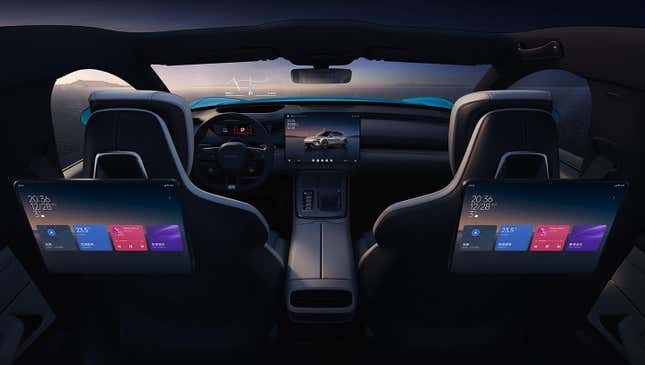
Image: Xiaomi







